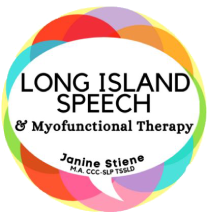Blog
Dysphagia is a disorder in the ability to eat and swallow, not to be confused with eating disorders, which are not due to a physical dysfunction, but an emotional and psychological disorder that revolves around eating and the implications of eating food. But according to ASHA, there is also Conditioned Dysphagia, which they describe as behavioral problems associated with eating. So if Conditioned Dysphagia is a disorder in which emotional issues create a problem with eating, then what is the difference between an eating disorder and conditioned dysphagia?
I would describe it like this…
Eating disorders are usually associated with a fear of eating for secondary reasons, like weight gain or being ostracized by others. Conditioned Dysphagia is more related to actual pain or sickness that comes along with eating. When a child has negative associations with eating early on, such as painful reflux or excessive vomiting or uncomfortable tube feedings, they begin to associate pain and discomfort with eating, even after their symptoms have been controlled, or they transition off tube feedings. It’s hard to understand sometimes as adults. Most adults love to eat and associate pleasure and happiness with food. But consider something like going to the dentist. When you are little and you only go for checkups, you get the yummy flavored toothpaste and cool stickers. The dentist is definitely not something you fear, that is, until your first cavity when they poke you with needles, you hear the drill in your mouth and your whole face is numb for several hours. I’m sure some of you are even cringing while just reading about the dentist. Imagine this as your child’s association with eating. Yes, you have to go to the dentist and clean your teeth regularly, but you still hate it and do everything you can to avoid going. The same goes with eating for these children. They will do whatever they can to avoid eating so they don’t have to deal with the pain and discomfort.
So remember, when you have a child who has had negative experiences with eating, you must be patient as they learn to enjoy food again (or for the first time). Make eating fun and a happy experience. Yelling and punishing will not improve their feelings about eating. Children learn best through play and we tend to leave play out of mealtimes (Sarah, don’t play with your food!). Why is it that when we are potty training, our whole world becomes talking about things with our children that we would be mortified to talk about as they get older but we can’t take time to make eating a fun experience? If we can make up a potty dance for every time our children use the potty, why can’t we do an eating dance or play an eating game? (Sorry for mixing the two subjects, but it needed to be said)
That’s all for now. Talk to you guys soon,
Melissa B.




